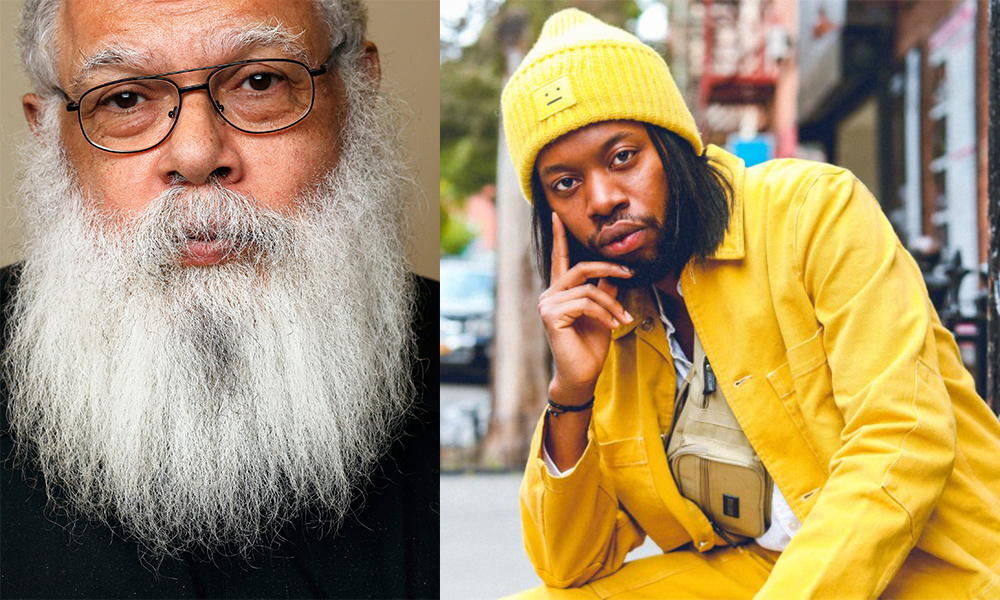We’re away until January 4, but we’re reposting some of our favorite pieces from 2020. Enjoy your holiday!
At three in the afternoon on a Friday in late January, Jeremy O. Harris arranged for an Uber to bring Samuel Delany from his home in Philadelphia to the Golden Theatre in New York City. Chip, as the famed writer of science fiction, memoir, essays, and criticism prefers to be called, arrived in Times Square around seven that evening to watch one of the last performances of Harris’s Slave Play on Broadway.
Though the two had never met before, Delany has been hugely influential on Harris, and served as the basis for a character in the latter’s 2019 Black Exhibition, at the Bushwick Starr. And Delany was very aware of Harris. The superstar playwright made an indelible mark on the culture, and it was fitting that the two should meet on Broadway, in Times Square, Delany’s former epicenter of activity, which he detailed at length in his landmark Times Square Red, Times Square Blue and The Mad Man.
After the production, Harris and Delany met backstage. “A lot of famous people have been through here to see this play, but this is everything,” Harris said. The two moved to the Lambs Club, a nearby restaurant that Harris described as “so Broadway that you have to be careful talking about the plays. The person that produced it is probably sitting right behind you.” (Right after saying this, Harris was recognized and enthusiastically greeted by fellow diners.) Over turkey club sandwiches and oysters, Harris and Delany discussed identity, fantasy, kink, and getting turned on in the theater.
HARRIS
Can I ask you about the play? How are you processing it?
DELANY
I was confused in the beginning, but then I realized, Aha! This is therapy. And then, Aha! The therapists are nuts! Then I traveled around having sympathy for all the characters, especially the stupid good-looking guy. He was sweet, I’ve had a lot of those. The character that I identified with most is the one who insists that he’s not white. I used to get that all the time, I mean, the number of times I was told by my friends at Dalton, Well, I would never know that you were black. As if I had asked them.
One of the best things that ever happened to me happened when I was about ten, which was a long time ago. I was born in 1942, so this is 1952, and I’m sitting in Central Park doing my math homework. This kid, he could have been about nineteen or twenty, and I think he was homeless, he walks up to me, and he says to me with his Southern accent, You a n****, ain’t you? I can tell. You ain’t gonna get away with nothin’ with me.
And I looked up at him, I didn’t say anything, and he looked at me and said, That’s all right. You ain’t gonna get away with nothing from me.
And I was so thankful for it. I realized, first of all, he was right. He was being much more honest with me than any of my school friends.
It was also my first exposure to white privilege. There were a lot of white people from the South who felt obliged to walk up and say, You’re black, aren’t you? They thought it was their duty. In case I thought, for a moment, that they didn’t know. This was part of my childhood: people telling me that I was black.
from The Paris Review https://ift.tt/2KScLO4

Comments
Post a Comment